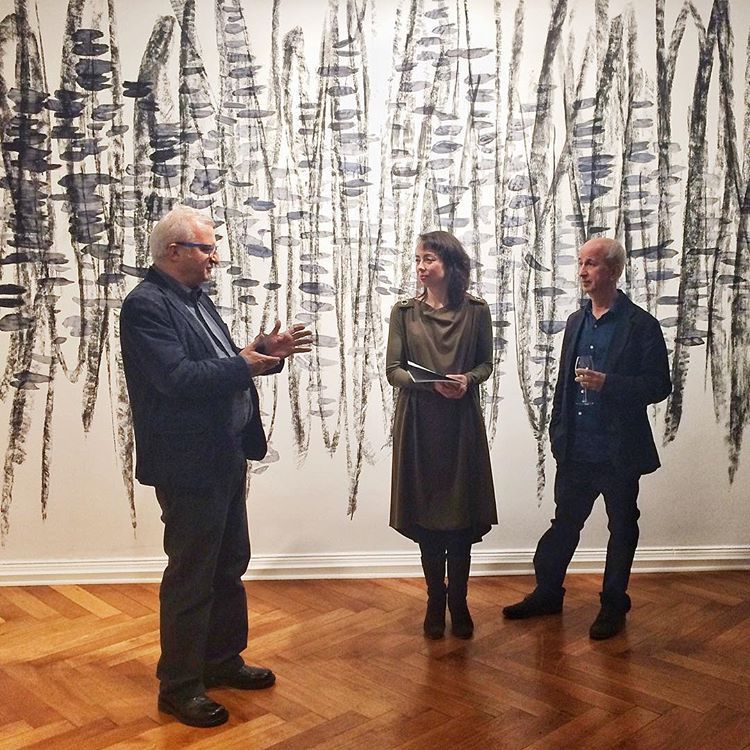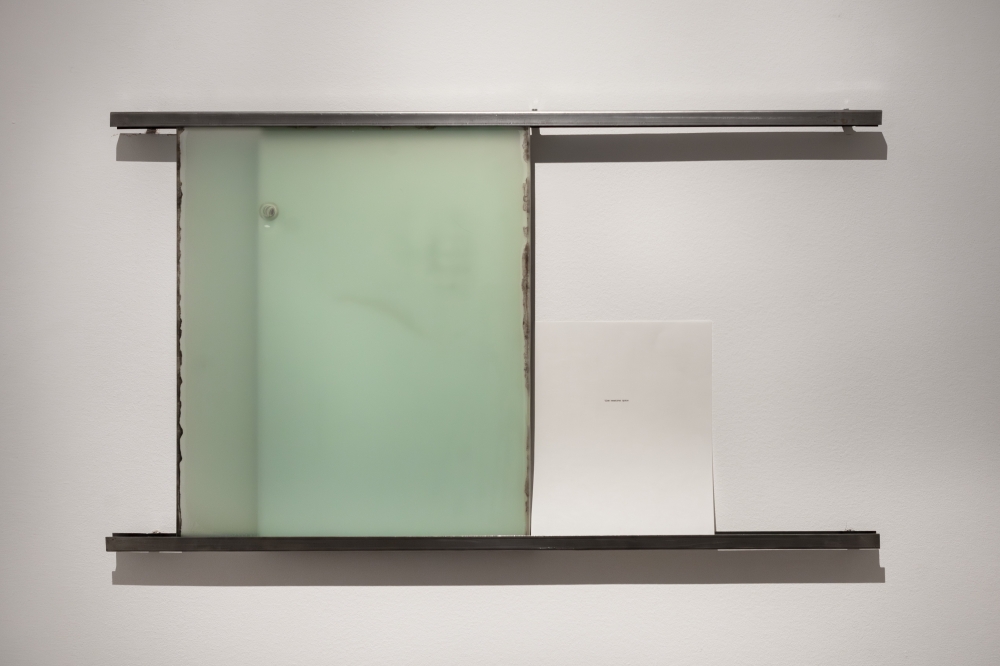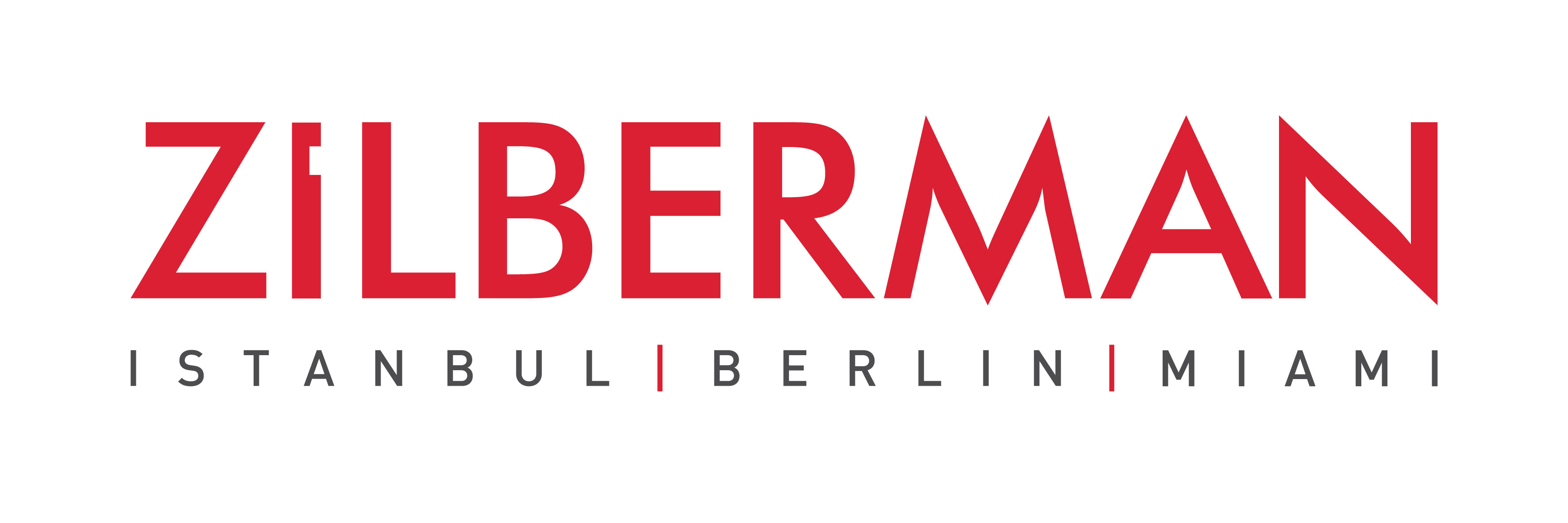Talk & Discussion - The Black Tower
Friday, February 10th, 2017, 7.30 p.m.
The talk between Walid Siti and Nat Muller took place on occasion of Siti’s solo show The Black Tower (04/01/2017 – 25/02/2017) curated by Nat Muller at the Zilberman Gallery–Berlin. Siti and Muller talked about his artistic practice and discussed the relationship between aesthetics/poetics and politics in his oeuvre.
Mountains, towers, and ladders are at the center of the exhibition The Black Tower by Walid Siti, who was born in the northern Iraqi city of Dohuk, on the border to Turkey, in 1954. After studying art in Baghdad, Walid Siti went to the famous art academy in Ljubljana (1977–1982), and as an opponent of the Ba’ath party, ultimately found exile in England after the commencement of the Iran-Iraq war (1980–88), in 1984, an experience which is influential for his work, and which he describes as a “journey of movement and one of forced movement.” Nat Muller and Walid Siti conversed about his delicate constructions that communicate a sense of the fragility of all human endeavors, but also of the patience required to build something. It is the sub-text of repression and conflict–tempered with the human capacity for resilience in the face of adversity–that continues to drive his practice.Excerpts from the conversation appeared under the title “A certain aesthetic. Walid Siti in conversation with Nat Müller” in Ibraaz.
Walid Siti (1954, Dohuk) was present at the Venice Biennale three times, first in 2009 together with other Kurdish artists in the exhibition Planet K (Kurdistan), participating in the Iraqi Pavilion at the 54th Venice Biennale in 2011, and the Iranian Pavilion at the 56th Venice Biennale in 2015. His works can be found in numerous collections, The British Museum, The Imperial War Museum, Victoria & Albert Museum in London, The National Gallery in Amman, Barjeel Art Foundation in Sharjah, The World Bank and The Iraq Memory Foundation, both in Washington DC.
Nat Muller is an independent curator and critic based in Amsterdam. Her main interests are the politics of representation, contemporary art from the Middle East, and food. She has written numerous catalogue and monographic essays on artists from the Middle East and has curated exhibitions, screening programs and other projects internationally.


